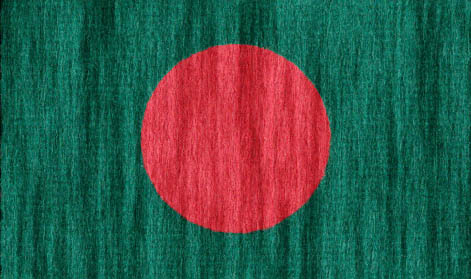By Mizan Rahman
Dhaka
Bangladesh has drawn up a plan to relocate Urdu-speaking Biharis, earlier known as stranded Pakistanis.
The Disaster Management Ministry has asked the deputy commissioners (DCs) of the districts around Dhaka to find out suitable land to shift the 33 camps of Urdu-speaking peopale in the capital.
Officials involved with the process said that the move is meant for easing ‘population pressure’ on the capital city. Ministry sources said that around 100,000 Urdu-speaking people live in these 33 camps in Dhaka.
They also said that the process of shifting these settlements – known as Bihari camps – from the middle of the city is one of the priorities of Prime Minister Sheikh Hasina.
She wants to ensure a healthy accommodation for the Biharis outside Dhaka as they are involved in various productive jobs such as crafting Banarasi and Jamdani sarees, some of which are exported.
The premier took the initiative last year after 10 people were allegedly killed at the Kurmitola Bihari camp by the followers of a local ruling party lawmaker.
In April this year, a delegation of the Biharis met Prime Minister Hasina and she promised to shift them to suitable locations outside Dhaka.
Around 300,000 Biharis live in 70 camps in 13 districts across the country. Apart from Dhaka, these camps are located in Narayangani, Khulna, Chittagong, Bogra, Rajshahi, Jessore, Jamalpur, Pabna, Munshiganj, Rangpur, Nilphamari and Gaibandha.
Recently, an inter-ministerial meeting discussed the progress of the PM’s priority works. The directive for shifting the Biharis came in that meeting.
Amit Kumar Baul, additional secretary at the disaster management ministry, said the initiative had been taken to ensure the basic facilities for these
people, not to evict them.
“We are yet find suitable land outside Dhaka for shifting the Bihari camps,” he said.
Farzana Naz, a resident of the Mohammadpur Bihari camp who has recently applied for a Bangladeshi passport, said: “The conditions in the camp are dire. Houses are separated by just 2ft wide passageways, shared by people, goats and chickens.”
She also said the houses are tiny, usually of less than eight by eight dimensions, and host entire families. When it rains, the camp floods.
“Despite there being a 2008 law that guarantees citizenship for Bihari refugees, we are facing serious hardships to obtain citizenship documents such as passports and
birth certificates,” she added.
Mohammad Shawkat Ali, joint secretary of the Stranded Pakistanis General Repatriating Committee and head teacher of the Geneva camp school, said: “We have already placed our statement regarding transferring our camps. We have also specified the basic facilities that our people should have if we move to a new land.”
He also said: “Urdu speakers have been enduring discrimination and extreme poverty since the country’s Liberation War. We are non-Bengali-speaking people but now we want to live like Bangladeshis. We have asked the government to conduct another survey on the Bihari population across the country.”

